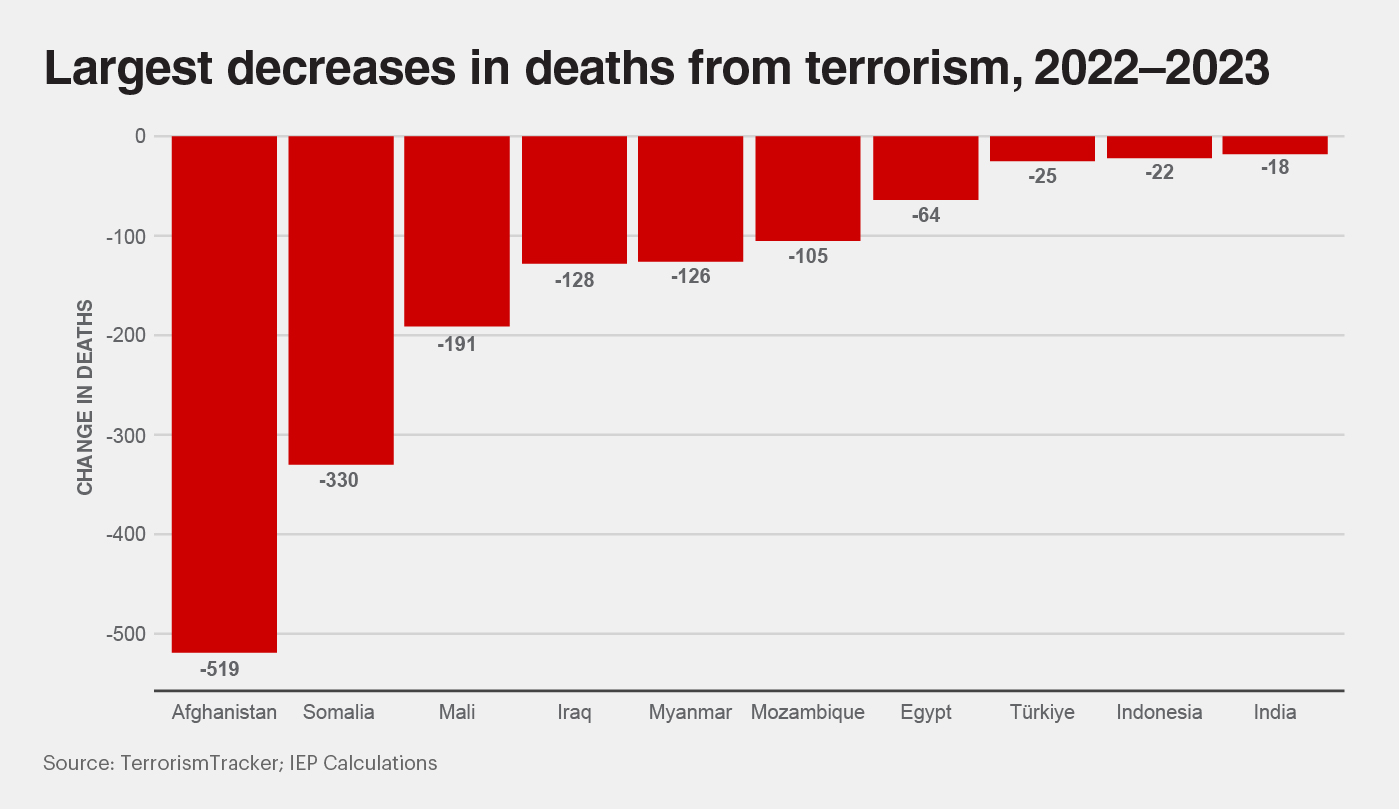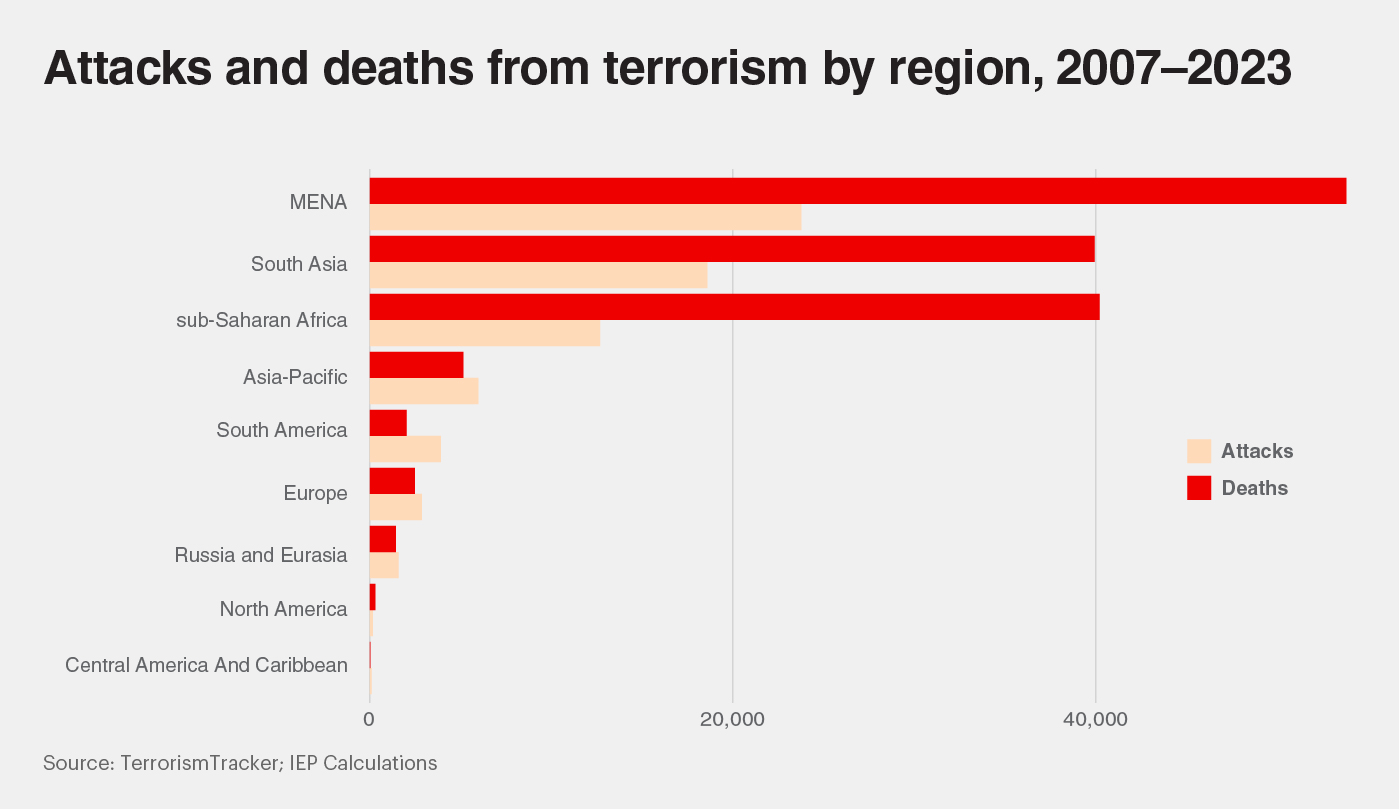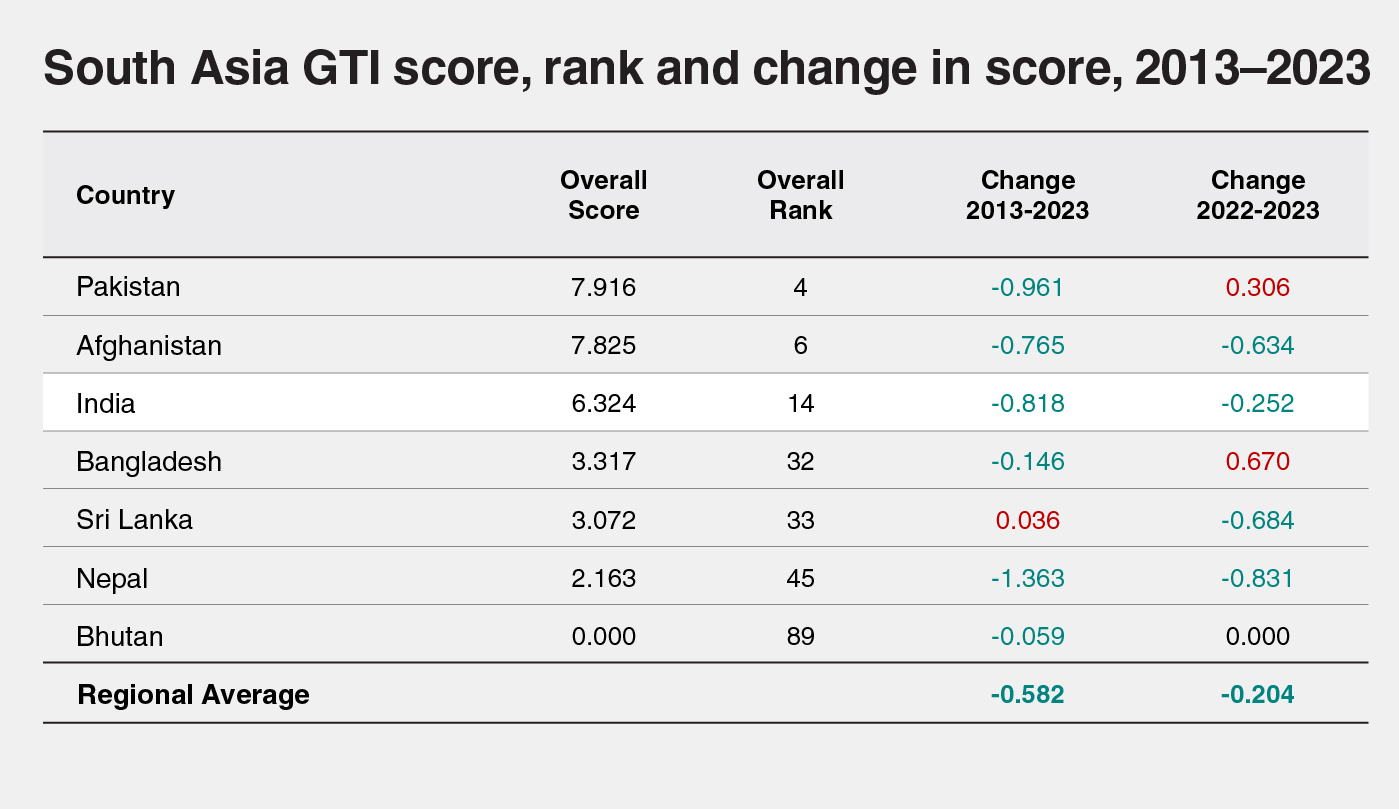According to the Global Terrorism Index 2024 (GTI), the number of deaths from terrorism in India declined. The country reported a decrease of 18 deaths from terrorism in 2022-2023, following a decrease of 45 deaths in 2021-2022, and 49 in 2020-2021.
India placed 14th on this year’s GTI, improving their rank by one place compared to the previous year. This new ranking comes as the country recorded a change in score decrease to place India within the range of a medium impact of terrorism.

Within the South Asia region, India was not the only country to record improvements, with Sri Lanka and Nepal both recording no attacks or deaths related to terrorism. Despite this, in 2023 South Asia was the region with the highest average GTI score, a position it has held since 2007. This high score can be attributed to the presence of the terrorist group Islamic State (IS), which was responsible for 39 attacks and 148 deaths in the region in 2023, and 149 attacks and 506 deaths in 2022. As a result, South Asia, along with sub-Saharan Africa, and the Middle East and North Africa, accounts for most terrorism deaths since 2007, as reflected in the graph below.

Determinants of terrorism in India include growing politico-ethnic violence as well as ethnic-sub regional nationalism, which has caused tension in the cross-border region of Jammu and Kashmir. Another factor that hinders India’s ability to combat terrorism is its geography, as the country contains “porous borders with all its neighbours and a long coastline,” (Ahluwalia 2017, p.101) which aids and abets the flow of transnational crimes in India’s outer regions.
However, according to Amnesty International, overly broad and ambiguous definitions of terrorism may be a factor hindering India’s improvements in counterterrorism. The country’s primary counterterrorism law, the Unlawful Activities (Prevention) Act (UAPA), was criticised by the organisation, who claim that “eight United Nations Special Rapporteurs (UNSRs) wrote to the Indian Government and asked them to rework their definition of terrorism,” (Amnesty International 2023, p.20).
Amnesty warned that a “lack of clarity” in the country’s definition of terrorism would “enfeeble other fair trial rights of detainees” and “violate the principle of legality.” But others, like Lt General (Dr.) VK Ahluwalia, the former Commander in Chief of Indian Army’s Central Command, cite the law as a successful measure that is “effective and potent in preventing unlawful activities and combat[ting] money laundering and terrorism financing,” (Ahluwalia 2017, p.101).
Despite this debate, India claimed the third highest GTI rank out of the seven countries in South Asia, as shown in the table below, behind Pakistan and Afghanistan. The only two countries within the region that recorded worsening change in 2022-2023 were Pakistan and Bangladesh. Out of the improving countries, India recorded the smallest improvement in score in the region, behind Nepal, Sri Lanka and Afghanistan. The only country in the South Asia region with a GTI score of zero is Bhutan, which has not recorded a terrorist attack in five years.

Although the impact of terrorism in South Asia remains high, the region improved significantly this year, and it was the second most improved region in 2023, behind South America. Additionally, when viewing the score change from 2013-2023, South Asia is recognised as the third most improved region, behind Russia and Eurasia, and the Middle East and North Africa. These trends suggest that if India continues to strengthen its counterterrorism measures, and South Asia continues to combat the impacts of terrorism, both may expect to maintain their streak of improvements.
References